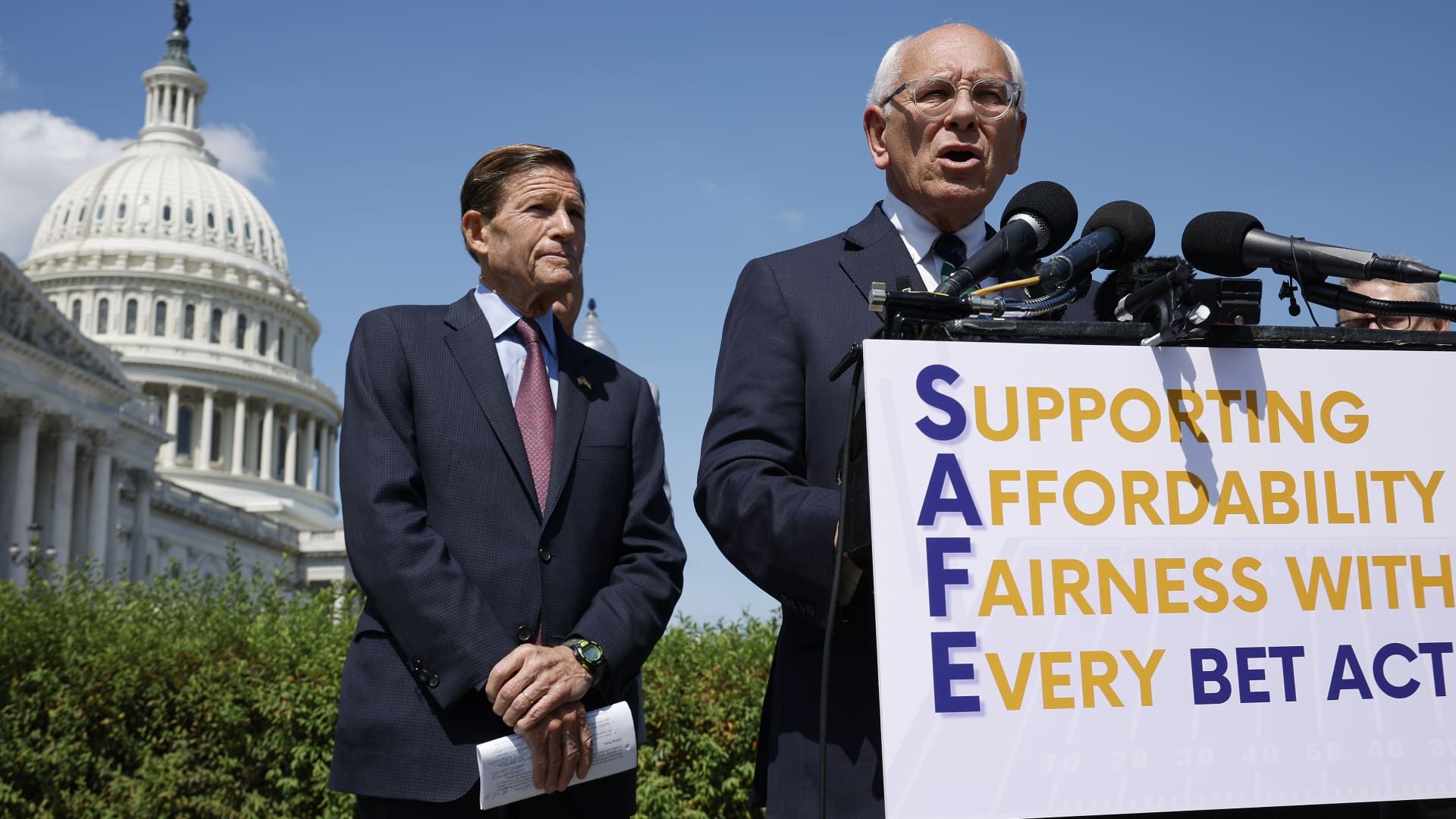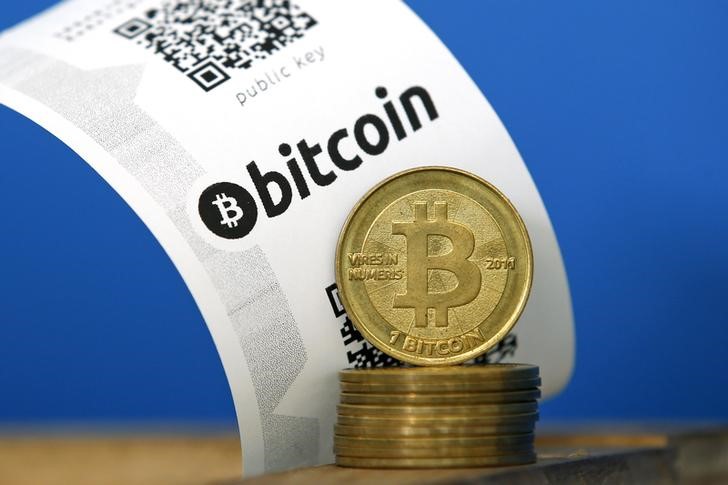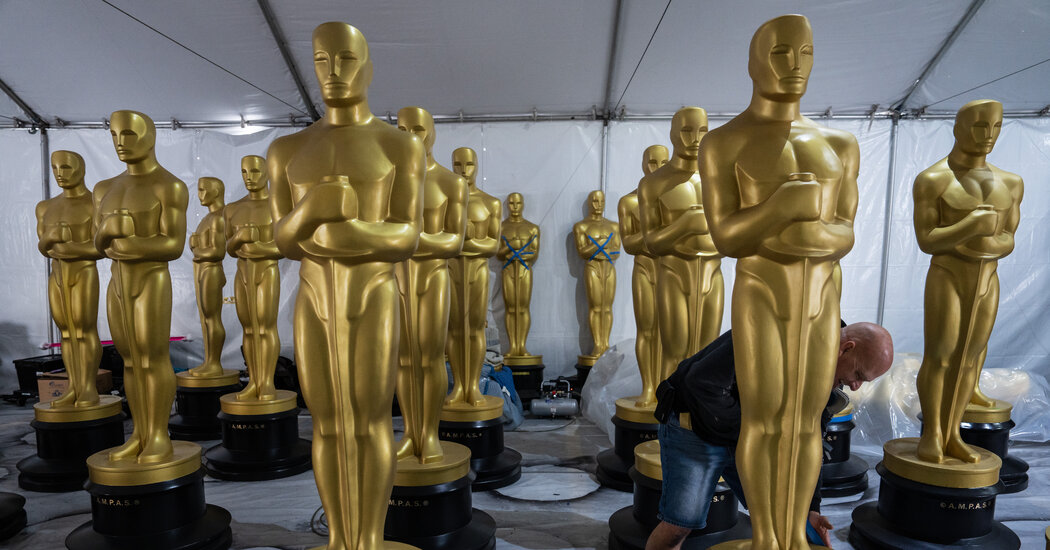Sports betting has skyrocketed across the United States over the past six years, and in response, two lawmakers have introduced legislation that would implement federal regulations on the practice.
Rep. Paul Tonko, D-N.Y., and Sen. Richard Blumenthal, D-Conn., on Thursday introduced the Supporting Affordability and Fairness in All Betting Act, or SAFE Betting Act, which seeks to ensure that sports betting operators meet minimum federal standards and attempts to address the public health implications resulting from legalizing sports betting.
“This relationship between the gambling industry and sports has reached intolerably dangerous levels, and it's time for Congress to step in and make a difference,” Tonko said at a news conference Thursday.
In 2018, the Supreme Court struck down the federal ban on sports betting. Six years later, sports betting has skyrocketed across the United States, as 38 states have legalized it. The industry is set to bring in a record $11 billion in 2023, marking a 44% increase from the previous year, according to the American Gaming Association.
It has also brought billions of dollars in new revenue to the states, which get a slice of the pie through taxes.
Rapid growth has led operators to spend large amounts of money to acquire customers through advertising, promotions and enticements.
“Now, every moment of every sporting event in the world has become a betting opportunity, whether you're scrolling through social media, driving down the highway past billboards or listening to your favorite podcast or radio station, sports betting ads are there to push you with an endless cascade of eye-catching promotions,” Tonko said.
Gordon Douglas joined lawmakers at the news conference and said he has seen firsthand the challenges of gambling addiction with his son, Andrew Douglas, 28. Gordon Douglas says his son, an athlete and coach, signed up with one gambling company and was then inundated with promotions and advertisements from at least six other companies.
“He became a different person, saying anything to get money to gamble,” she said. “He got to the point where he wanted to end his life because he didn't see a way out.”
The Douglas family is not alone: An estimated 7 million people in the U.S. have a gambling problem, and one in five problem gamblers has attempted suicide, according to the National Institutes of Health and the National Council on Problem Gambling.
A July report found that the odds of filing for bankruptcy in states with legal gambling increased by 25% to 30%.
Lawmakers say they are not trying to ban sports betting, they are just trying to make it safe for the public to enjoy it as a recreational activity by pushing for a national standard.
“State regulation is cowardly and half-baked. That's why we need a national rule, not to ban gambling, but simply to take back control of an industry that is off-limits,” Blumenthal said Thursday.
The bill addresses three key areas related to sports betting: advertising, affordability and artificial intelligence.
“This industry is exploiting the most advanced technology to make the most money,” Blumenthal said of AI.
He said he wants to ban the use of AI to track players' gambling habits and individual promotions.
The bill also pushes for changes to advertising, including banning sportsbooks from advertising during live sporting events that are intended to induce gambling with “effortless” or “bonus” type bets.
Finally, the legislation would limit customer deposits to five in a 24-hour period and require gambling operators to ensure that customers who wager more than $1,000 are able to do so.
“The gaming industry is following a model developed by the tobacco industry and this poses a direct threat to public health,” said Richard Daynard, a law professor and president of Northwestern's Public Health Advocacy Group.
Meanwhile, sports betting operators are fighting back, claiming the industry has brought profits.
Chris Cylke, senior vice president of government relations for the American Gaming Association, said the bill is “a slap in the face” to state regulators and gambling operators who have devoted significant time and resources to developing the framework as the market evolves.
“Today's regulated sports betting operators are contributing billions of dollars in state taxes across the United States, protecting consumers from dangerous local bookmakers and illegal offshore websites, and working diligently with more than 5,000 state and tribal regulators and other stakeholders to ensure a commitment to responsible and positive gaming,” Clyke said.
The bill also received public opposition from Rep. Dina Titus, D-Nev., who called the SAFE Bet Act “outdated” and “unjustified.”
Douglas said his family has been able to get help for their son, but wants to make sure others don't go through a similar path.
“As a country, we should not allow him and others like him to be exploited,” she said. “We should do the right thing to limit access to this type of gambling.”
If you are having suicidal thoughts or are in danger, contact the Suicide and Crisis Helpline at 988 to receive support and assistance from a trained counselor.
— CNBC's Contessa Brewer contributed to this report.









